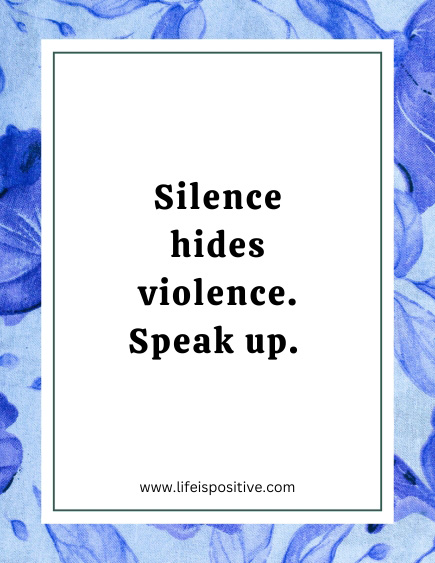|
Getting your Trinity Audio player ready...
|
Recognizing the signs of child abuse can be tricky, but it’s crucial for protecting those who may not be able to speak up for themselves. From sudden changes in behavior to physical marks, the signs of child abuse often go unnoticed unless we’re paying close attention.
These signs can be emotional, physical, or even behavioral, and they all point to the need for intervention. So, if you’ve noticed something off with a child in your life, it’s important to take action.
Let’s dive into the 12 key signs that could signal a child is in need of help.
1. Unexplained Changes in Behavior
Kids are naturally expressive and curious. So, if a child suddenly becomes withdrawn, overly aggressive, or shows drastic changes in behavior, it might be a red flag for child abuse.
These shifts can be their way of coping with the trauma they’re facing.
2. Frequent Absences from School
If a child is frequently absent from school without a clear reason, it might be a sign of abuse.
Abusers might keep kids home to hide injuries, or because they’re scared, the child will talk about what’s happening. Keep an eye on attendance patterns and the excuses given for frequent absences.
3. Difficulty Sitting or Walking
Physical signs of child abuse can be really subtle, like a child having trouble sitting or walking. This might point to physical or sexual abuse.
If a kid frequently shows discomfort or pain without a clear reason, it’s important to look into it further.
Read: 15 Abusive Partner Red Flags Signs You Shouldn’t Ignore
4. Reluctance to Go Home
Kids should feel safe and happy about going home. If a child seems scared or reluctant to go home, it could be a sign of abuse.
They might come up with excuses to stay at school or hang out with friends longer than usual.
5. Changes in Eating Habits
Abuse can mess with a child’s eating habits, causing them to lose or gain a lot of weight.
Sudden changes in appetite, like hoarding food or skipping meals, can be subtle signs of abuse. If you notice these shifts, it might be time to look closer.
6. Risky Behaviors
If a child suddenly starts doing risky things like using drugs, self-harming, or running away, it could be their way of coping with abuse.
These actions are often cries for help and attempt to escape the pain they’re going through.
7. Regression in Development
If a child starts regressing, like bedwetting, thumb-sucking, or losing language skills, it might be a sign of abuse.
Kids often revert to earlier behaviors as a way to cope with trauma and feel safe.
8. Fear of Certain Adults
If a child seems scared of certain adults or avoids them like the plague, it could be a sign of abuse.
Pay attention to any fear or discomfort they show around specific people, even if they don’t say anything outright.
Read: Male Anxiety In Relationships: Symptoms & Cures
9. Inappropriate Sexual Behavior or Knowledge
If a child shows sexual behavior or knowledge way beyond their age, it could be a sign of sexual abuse.
This might include using sexual language, mimicking adult-like sexual actions, or having an unusual curiosity about sexual topics.
10. Poor Hygiene or Clothing
Neglect is a form of child abuse that can show up as poor hygiene or inappropriate clothing.
If a kid often looks unwashed, wears dirty clothes, or has outfits that don’t match the weather, it could be a sign of neglect.
11. Unexplained Injuries
Kids often get bumps and bruises from playing, but frequent or unexplained injuries can be a subtle sign of abuse.
Watch for patterns like injuries at different stages of healing or in places that are less likely to be hurt accidentally, like the back or thighs.
12. Extreme Passivity or Compliance
If a child is extremely passive or overly compliant, especially in stressful situations, it might be a sign of abuse. They could be trying to avoid conflict or punishment by being unusually well-behaved.
Steps to Take if You Suspect Child Abuse
1. Document Observations: Keep a detailed record of your observations, noting dates, times, and specific behaviors or signs that concern you.
2. Talk to the Child: Approach the child gently and express your concern. Let them know they are safe and can talk to you if they need to.
3. Report to Authorities: If you suspect child abuse, it’s important to report it to local child protective services or law enforcement. They have the resources and authority to investigate and intervene.
4. Provide Support: Offer emotional support to the child. Let them know you believe them and that it’s not their fault. Provide reassurance and comfort.
Read: 10 Things You Should Never Tolerate from Life
Final Thoughts: Signs of Child Abuse
Understanding and recognizing the subtle signs of child abuse can make a huge difference in a child’s life. Often, kids might not have the words or courage to speak out about their abuse. By being vigilant and aware of these signs, we can step in and offer help before things get worse.
Spotting the subtle signs of child abuse can be tough, but it’s a crucial responsibility we all share. By staying informed and alert, we can help protect children from harm and ensure they grow up in a safe, loving environment.
Creating a safe and protective environment for kids is essential. Encourage open communication, teach them about body safety and boundaries, and be a trusted adult they can turn to if they need help.
Remember, if you see something, say something. Your actions could save a child’s life.Let’s work together to make the world a safer place for our children.
Thanks for reading, and please share this information with others. Together, we can raise awareness and help protect the most vulnerable among us.
For more empowering content, connect with our vibrant community here ➡️ Social Media.



